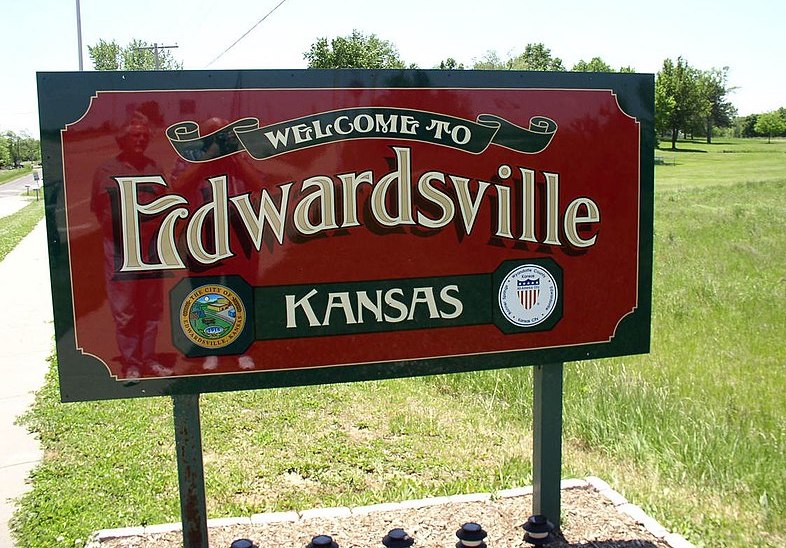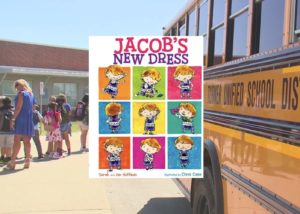Small Kansas town council rejects state’s legal protections for teachers, librarians who submit obscene materials to minors
Should teachers and librarians have legal immunity for providing obscene materials to minors? The state of Kansas says yes. One small town defiantly says no.
The city council of Edwardsville, a town…

Should teachers and librarians have legal immunity for providing obscene materials to minors? The state of Kansas says yes. One small town defiantly says no.
The city council of Edwardsville, a town of 4,800 in the Kansas City area, voted 3-2 Monday to reject a state law-inspired municipal ordinance that essentially grants immunity to school and library officials for presenting obscene materials to minors.
It’s a provision in current state law, and in past Edwardsville ordinances, that grants such immunity. Cities in Kansas are offered a Uniform Public Offense Code (UPOC) each year by the League of Kansas Municipalities as a model cities can adopt – or reject or amend to their liking – as a catchall public offense ordinance, patterned after state laws.
Like her colleagues, Mayor Carolyn Caiharr, who took office this year after being on the council, had never noticed the obscenity protections before in the 160-page UPOC. This year, she did. And after weeks of study and discussion, and a meticulous explanation of the issue by Caiharr Monday night, the council followed her recommendation to strike the obscenity protections from city ordinances.
“It was pretty shocking to see that anyone would have an exemption when it comes to showing obscene materials to children in our community,” she told The Lion.
“Whether it’s considered curriculum or it’s something outside of curriculum that someone might consider educational, if it’s obscene – especially as defined within the verbiage of that section – it doesn’t belong around children.”
Residents of Edwardsville were clearly outraged after learning about the obscenity protection, with 10 citizens speaking Monday in support of the mayor’s proposal to strike the verbiage from city ordinances.
“Let’s not forget that this is an open door for grooming” of children into adult sexual lifestyles, one woman told the council – adding that exposure to graphic depictions, descriptions and discussions of sex can lead to premature experimentation, desensitization to high-risk behaviors, blurred boundaries and increased risk of exploitation and victimization.
One resident, Ryan Parker, cited the American College of Pediatricians’ warning that childhood exposure to pornography can lead to “increased rates of depression, anxiety, acting out and violent behavior, younger age of sexual debut, sexual promiscuity, increased risk of teen pregnancy, and a distorted view of relationships between men and women.”
Section 11 of UPOC doesn’t use the word pornography but, Caiharr notes, “it is promoting obscenity to minors and harmful materials to minors, and if you read the definitions of what’s considered obscene and harmful, I believe pornography would fall within those guidelines. It may not be presented as pornography – it may be presented as part of educational material – but it’s obscene and harmful all the same.”
Supporters of the obscenity protections argued at a meeting last month that health care workers and law enforcement officers need to use such images in investigations of childhood sex abuse. But Caiharr said professionals in each discipline reported no such need to her for graphic images in investigations.
“Children need not be presented with sexual information and obscene materials,” Parker assured the council Monday. “Nudity and sexual acts have no place in our public schoolings.”
Given that ordinary citizens can be charged with crimes for proffering obscene materials to children – and that parents across the country have been told they can’t even read aloud to school boards some of the risqué materials given to children in public schools – Parker told the council, “I would ask you to help me make sense of that, but I don’t believe you can.”
Others have cautioned that the city could be sued for striking the obscenity protections for teachers and librarians.
“You know, some fights need to be fought,” Parker said to that. As a father and pastor, he said, he considers the obscenity protections to be “an open avenue for danger in our community.”
State law does indeed regard that “any material or performance is obscene if the average person applying contemporary community standards would find that the material or performance, taken as a whole, appeals to the prurient interest.” This is arguably what the Edwardsville council did.
Yet, Article 11.1 of UPOC, section d – one of four sections deleted by the council’s vote – says in part:
“It shall be a defense to a prosecution for promoting obscenity and promoting obscenity to minors that the … [d]efendant is an officer, director, trustee, or employee of a public library and the allegedly obscene material was acquired by such library …” or that the “[a]llegedly obscene material or obscene device was purchased, leased, or otherwise acquired by a public, private or parochial school, college, or university, and that such material or device was either sold, leased, distributed, or disseminated by a teacher, instructor, professor or other faculty member or administrator of such school as part of or incident to an approved course or program of instruction at such school.”
A city attorney for Edwardsville seemed to argue Monday that no school curriculum could possibly be prurient. Yet, the definition of prurient is simply “having or encouraging an excessive interest in sexual matters.” Parents argue that’s precisely what today’s over-the-top sex curricula do.
“Absolutely. That is my concern,” says Caiharr, a parent herself.
It’s also clearly the concern of many parents, who may find that longstanding obscenity protections for teachers and librarians are hopelessly outdated today amid the widespread use of shockingly racy materials in even early grades.
Such concerns are not theoretical:
- An elementary school principal in Minnesota was forced to apologize this summer after promoting a gender-bending book called “Jack (Not Jackie)” to students as young as five.
- In Oklahoma, a high school English teacher resigned after allegedly instructing her students to access inappropriate books via a QR code.
- A summer reading list for middle schoolers in Maryland included a book celebrating its characters for gender transition, asexuality and crossdressing.
- In August, a Wisconsin school board approved a sex education curriculum in which kindergartners will explore gender issues, and will be taught about such terms as penis, vulva and anus.
“I think that it is really important that parents are informed and involved,” Caiharr says. “And I believe we’ve seen that, in parents running for school boards and getting involved in local government – that people are more aware of what’s going on within the school system than they had been before. I think that is vital.”



